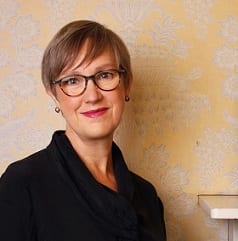 It is always a great pleasure to host the monthly Provost Academic Achievement celebrations, gathering to recognise the most significant academic achievements of colleagues across the University.
It is always a great pleasure to host the monthly Provost Academic Achievement celebrations, gathering to recognise the most significant academic achievements of colleagues across the University.
At previous events we have celebrated our CDT award success, the Institute of Digital Futures RPIF funding, the NIHR Applied Research Collaboration award, an impressive range of ESRC and AHRC research awards, phenomenal Horizon 2020 success and the ALSPAC (Children of the 90s) renewal award. Each event has been uplifting, and a welcome reminder of the real talent we have in our university community.
This month, we gathered to celebrate the truly outstanding achievement of colleagues in the Faculty of Science. These events usually take place in Royal Fort House. As you’d expect this month, we’ve had to take a slightly different approach and move proceedings online. Happily, that didn’t diminish the celebrations. Indeed, the virtual format allowed us to invite more colleagues to take part and help amplify the celebration!
It was heartening to see so many people join us to acknowledge the achievements of their colleagues, and there were an impressive number of awards to celebrate.
- Dann Mitchell and team, Met Office Partnership
Dann recently led our successful proposal for the University join forces with the Met Office and UCL in a move which will strengthen the UK as a world leader in predicting climate hazards and tackling their far-reaching impact. This is a fantastic result for the University that will benefit the whole institution.
- Jonathan Rigg, Royal Geographical Society Victoria Medal
The Victoria Medal recognises “conspicuous merit in research in geography” and has been given, in honour of the late Queen Victoria, since 1902. Professor Rigg now joins a distinguished club which includes the likes of George Darwin. Jonathan’s work has focused on understanding – and judging – the effects of agrarian transformations on rural livelihoods in Asia, especially on poorer sections of rural society.
- Emma Raven, Royal Society of Chemistry 2020 Interdisciplinary Prize
Professor Raven was awarded the Royal Society of Chemistry 2020 Interdisciplinary Prize for her seminal contributions to understanding the structure and function of heme proteins, which form part of hemoglobin, and their role in biology. - Chris Willis, Royal Society of Chemistry 2020 Award for Natural Product Chemistry
Professor Willis’s award was given for research centred on understanding how bacteria and fungi produce biologically active compounds with the aim of harnessing the complex biosynthetic machinery to produce new bioactive compounds cleanly and efficiently.
- Tony Davis, Royal Society of Chemistry 2020 Robert Robinson Award
Professor Davis received the Robert Robinson Award for outstanding contributions to the design and synthesis of selective carbohydrate receptors with potential to improve the wellbeing of those with diabetes.
- Dek Woolfson, Humboldt Research Award
Professor Woolfson’s research has always been at the interface between chemistry and biology, applying chemical methods and principles to understand biological phenomena such as protein folding and stability. The award is given by the Alexander von Humboldt Foundation in Germany and is reserved for nominees from outside Germany who are internationally renowned for their academic research and expected to continue to make contributions to their respective disciplines.
- Stephen Hayden, Institute of Physics Mott Prize
Professor Hayden was awarded the prestigious Mott Medal from the Institute of Physics (IOP) for his distinguished contributions to condensed matter physics. The award recognises, celebrates and reflects the impact and applications of physics in everyday life, the breadth of the discipline in academia, industry and medicine, and its impact in extraordinary human achievements.
- Rich Pancost, Jeremy Philips and Frances Cooper, Athena SWAN Silver Award
The School of Earth Sciences has achieved a coveted Silver Athena SWAN award, which recognises the impact the School’s actions, initiatives, and policies have made on gender equality. The School nearly has gender balance at every level of its academic, technical and professional staff and more than 40% of professors are women.
These achievements show the incredible strength and depth of academic excellence that exists across the Faculty of Science. It’s a truly outstanding result for one school to win three Royal Society of Chemistry prizes in one year and the Earth Sciences Athena Swan Silver is a fantastic achievement, and testament to the great teamwork of colleagues in the school. The University now has 10 Bronze awards and 6 Silver Awards.
Congratulations to all. I’m very much looking forward to celebrating the success and achievements of other colleagues at future events
